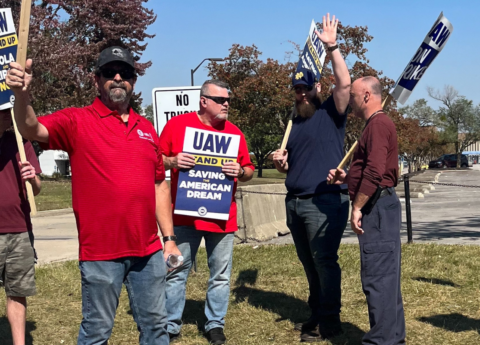Congress is set to adjourn at the end of this month, yet its biggest and most urgent piece of business remains undone. With the economy unravelling further from the continuing pandemic and the end of CARES Act stimulus funds, it’s critical that Congress provide a strong additional relief package.
The House passed a bill back in May that would get the job done, the $3.4 trillion HEROES Act. House leaders have also shared a willingness to compromise with a package that is a trillion dollars smaller, yet still big enough to be helpful for now.
But the Senate hasn’t passed any relief legislation, and last week took a symbolic and failed vote on a very weak bill, known as the “skinny” proposal. By including only a fraction of what the HEROES Act contained, that proposal would’ve shortchanged the nation at a time of unprecedented need.
The skinny plan left out general aid to state and local governments, which will mean cuts to services like schools and health that are always essential, but especially in this crisis. With the pandemic-related drop in Kentucky’s tax revenue, the state budget director recently told agencies to prepare for an 8% budget cut, according to the Lexington Herald-Leader. Cuts of that size will likely mean more reductions in public sector employment on top of the 30,000 state and local government jobs Kentucky has already lost since February, dragging the economy down further.
The skinny proposal also left out much-needed money for housing and food assistance. And it proposed cutting extended unemployment benefits in half and allowing benefits to end prematurely.
Yet Census data shows nearly 1 in 4 Kentucky renters are behind on rent, and 287,000 Kentucky adults reported their household didn’t have enough to eat in July. Job growth also slowed in the most recent month, and a realistic unemployment rate for the state — which counts people who have left the labor force since February — is a historically high 16%.
Cutting unemployment benefits would hurt people laid off through no fault of their own, and worsen racial inequities. Black Kentuckians have been laid off at significantly higher rates than whites, and are less likely to have been rehired in recent months — in part because a history of discriminatory structural barriers means more Black Kentuckians work in hard hit industries, including restaurants.
Troubling new jobs data shows more temporary layoffs are becoming permanent. We are still a ways off from a vaccine that we all hope will put the horror of COVID-19 behind us. And the damage done to the economy is expected to extend well beyond treatment of the disease.
We’re at a fork in the road, but one direction is a dead end. We can’t bring the economy back by ignoring the proven ways to limit the spread of COVID-19, including mask and social distancing requirements as well as limitations on businesses and activities we would all rather be doing. Economic woes persist across all states, from those with the strictest rules to those with the laxest requirements. The pandemic is what sunk the economy, not the ways we’ve protected people from it.
There’s only one way forward, and that’s adequate Congressional aid. More relief can limit the harm by protecting families from hunger and homelessness, critical public services from deep cuts and the economy from the ripple effects. Talk of deficits and debts are insincere and without merit — a broad spectrum of economists agree the federal government must spend aggressively during downturns when consumers, businesses and state and local governments are all pulling back.
All we need is a willingness from our leaders to do what’s right.
This column ran in the Daily Independent and the Kentucky New Era on September 16, and State Journal on September 17, 2020.




